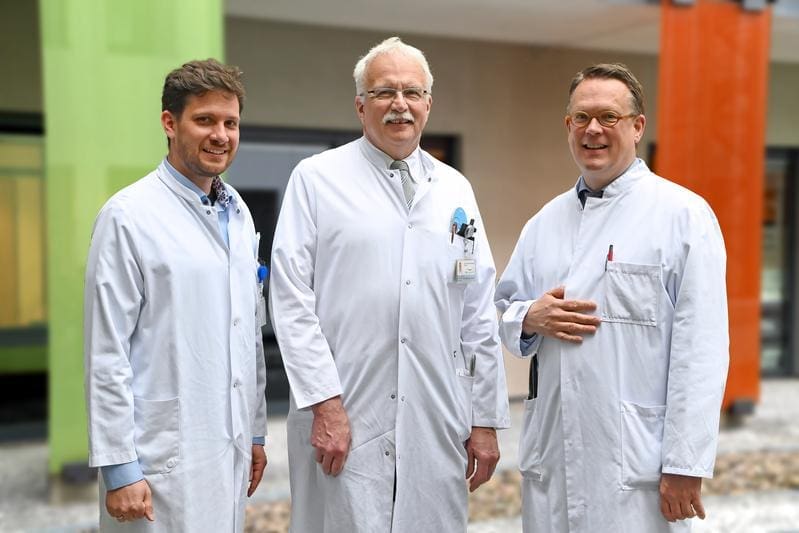World’s first CAR-T cell therapy for autoimmune neuropathy successfully applied in Bochum
A team of doctors at the University Medical Center of Ruhr University Bochum has achieved a groundbreaking success in the treatment of severe autoimmune diseases. For the first time worldwide, CAR-T cell therapy was used in a clinical trial to treat two patients with chronic inflammatory demyelinating polyneuropathy (CIDP), a rare disease of the peripheral nervous system. The results, published on June 17, 2025 in the renowned journal The Lancet Neurology, mark a milestone in neuroimmunology and open up new perspectives for patients with treatment-resistant courses.
CIDP is a rare autoimmune disease characterized by a misdirected immune reaction against the myelin sheath of the peripheral nerves. It leads to paralysis, sensory disturbances and, in severe cases, complete inability to walk or even life-threatening conditions. With a prevalence of two to five patients per 100,000 people, CIDP represents a challenge for medicine, especially when conventional therapies such as immunoglobulins or corticosteroids fail. CAR-T cell therapy, originally established in cancer medicine, has not yet been systematically investigated in neurological autoimmune diseases. The Bochum study closes this gap and shows for the first time that the method is also effective in severe forms of CIDP.

For the study, the doctors took blood from the two patients using leukapheresis to isolate T immune cells. These were genetically modified in collaboration with an American company by introducing specific receptors into the cells via viral vectors. These so-called chimeric antigen receptors (CAR) enable the T cells to specifically recognize and eliminate disease-causing B cells that attack the nervous system. Each patient received a customized infusion of their modified CAR T-cells, which were then administered under strict monitoring in an intensive care unit.
The therapy showed impressive results: Just a few days after the infusion, the disease-causing B cells disappeared completely from the bloodstream. At the same time, the patients’ clinical symptoms improved significantly. Some were able to move around safely for the first time in years. Objective measurements, including clinical scores and neurophysiological examinations, showed improvements of over 200 percent in some cases. Remarkably, no further immunotherapies were required after the one-off treatment, which underlines the sustainability of the method.
The treatment was not free of side effects. Between the fourth and tenth day after the infusion, moderate inflammatory reactions occurred, caused by cell death of the B cells and the release of cytokines. However, these reactions, including fever or flu-like symptoms, were quickly and effectively controlled by established immune drugs. The Bochum physicians monitored the proliferation of CAR-T cells and the decrease of B cells in the blood on a daily basis to ensure the safety of the patients. The treatment took place in a highly structured setting, as is usual for individual treatment trials.
Original Paper:
Read also:
MHH: Successful CAR-T cell therapy for acquired hemophilia A – MedLabPortal
Editorial office: X-Press Journalistenb├╝ro GbR
Gender note. The personal designations used in this text always refer equally to female, male and diverse persons. Double/triple references and gendered designations are avoided for the sake of better readability ected.




